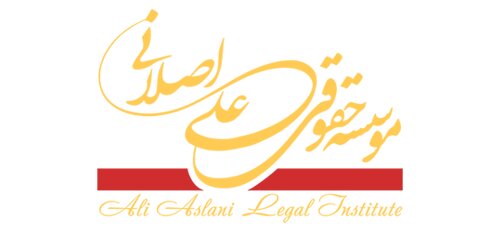Best Class Action Lawyers in Tehran
Share your needs with us, get contacted by law firms.
Free. Takes 2 min.
List of the best lawyers in Tehran, Iran
About Class Action Law in Tehran, Iran
Class action law in Tehran, Iran, allows a group of people with common legal claims against the same entity to collectively bring a lawsuit in court. This form of litigation is beneficial as it enables multiple individuals to join forces, share legal costs, and pursue justice more efficiently. While class action suits are not as common in Iran as in some Western countries, they are gradually becoming more recognized due to increasing awareness of consumer rights and business accountability.
Why You May Need a Lawyer
There are numerous reasons why individuals in Tehran might require legal help for class action lawsuits. Some common situations include:
- Deceptive business practices affecting numerous consumers.
- Defective products that harm many users.
- Environmental issues impacting communities.
- Employment disputes involving violations of labor laws.
- Financial scams targeting large groups of people.
Legal representation is crucial to navigate the complexities of filing and managing a class action lawsuit, ensuring your rights are adequately protected.
Local Laws Overview
In Tehran, the procedural laws governing class actions are less established than in some other jurisdictions. However, the increasing incorporation of class action principles into Iranian law points to a growing acceptance of such legal actions. Key aspects of local laws relevant to class action include:
- The requirement for commonality: plaintiffs must demonstrate that they have suffered similar harm or loss from the defendant's actions.
- The certification of the class: the court must approve the group as a class before proceeding.
- Representation by a lead plaintiff: one member of the class often takes a central role in representing the group.
Frequently Asked Questions
What is a class action lawsuit?
A class action lawsuit is a legal case filed by a group of individuals who have experienced similar harm or injury caused by the same defendant, allowing them to seek collective justice.
Who can file a class action in Tehran?
Any group of individuals who have suffered similar harm from a single entity's actions may file a class action, provided they meet legal criteria for commonality and class certification.
What are the advantages of class actions?
Class actions allow plaintiffs to share legal expenses, increase the efficiency of the court process, and provide a platform to litigate cases that might be too costly to pursue individually.
What challenges might one face in a class action?
Challenges include obtaining class certification, coordinating among plaintiffs, potential lengthy litigation, and uncertainties in settlement negotiations.
How is compensation divided in a class action?
If the class action is successful, compensation is typically divided among the plaintiffs based on the extent of their harm, as determined by the court.
Can foreign citizens be part of a class action in Tehran?
Foreign citizens residing in Tehran and affected by a common issue the lawsuit addresses might be able to join a class action, subject to specific legal criteria.
How long does a class action lawsuit take?
The duration varies significantly depending on the case's complexity, the number of plaintiffs, and the speed of court proceedings; it can range from several months to a few years.
Is participation in a class action mandatory?
Participation is voluntary, but those who opt-in are bound by the lawsuit's outcomes, including any settlements or judgments.
What is the role of a lead plaintiff?
The lead plaintiff acts as the main representative of the class, working closely with the legal team to make decisions concerning the lawsuit.
Can a class action be settled outside of court?
Yes, many class actions are settled outside of court through negotiations, often resulting in an agreed-upon compensation amount for the affected parties.
Additional Resources
For further guidance, consider reaching out to the following organizations and governmental bodies that can offer assistance with legal advice on class actions in Tehran:
- Iranian Bar Association
- Consumers and Producers Protection Organization (CPPO)
- Judiciary of the Islamic Republic of Iran - Legal Assistance Department
- Tehran Chamber of Commerce for business-related disputes
Next Steps
If you believe you need legal assistance in a class action, you should take the following steps:
- Consult with a lawyer who has experience in class action lawsuits. Look for law firms in Tehran specializing in the area of your dispute.
- Gather evidence supporting your claim, such as documentation, correspondence, or records of damage incurred.
- Join or form a group of individuals similarly affected if possible, enhancing the likelihood of a successful class certification.
- Discuss potential costs and outcomes with your lawyer to set realistic expectations and understand any financial obligations.
Taking these steps can help you better understand your situation and prepare adequately to pursue a class action suit in Tehran, Iran.
Lawzana helps you find the best lawyers and law firms in Tehran through a curated and pre-screened list of qualified legal professionals. Our platform offers rankings and detailed profiles of attorneys and law firms, allowing you to compare based on practice areas, including Class Action, experience, and client feedback.
Each profile includes a description of the firm's areas of practice, client reviews, team members and partners, year of establishment, spoken languages, office locations, contact information, social media presence, and any published articles or resources. Most firms on our platform speak English and are experienced in both local and international legal matters.
Get a quote from top-rated law firms in Tehran, Iran — quickly, securely, and without unnecessary hassle.
Disclaimer:
The information provided on this page is for general informational purposes only and does not constitute legal advice. While we strive to ensure the accuracy and relevance of the content, legal information may change over time, and interpretations of the law can vary. You should always consult with a qualified legal professional for advice specific to your situation.
We disclaim all liability for actions taken or not taken based on the content of this page. If you believe any information is incorrect or outdated, please contact us, and we will review and update it where appropriate.
















